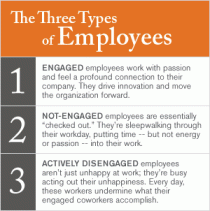
Have you ever shipped a new blog, software version, music track, speech, design, (your art) knowing it wasn’t perfect and you sent it anyway?
Like you, I am an artist, an innovator constantly fielding new ideas and rumblings.
That means there is always another idea waiting for me after I ship this one.
Let’s explore why shipping early and repairing later is actually better than waiting for perfection.
Real Artists Ship.
Steve Jobs


Fellow heretic Guy Kawasaki
Formerly Guy was the chief evangelist of Apple. I am very partial to one of his first books, Rules for Revolutionaries -The Capitalist Manifesto.
In this twelve year old book Guy lays out nine rules for revolutionaries to follow. (See all 9 here).
Don’t Worry Be Crappy.
Yep, that is what Guy said. And you should too.
I’ve spent the past seven years in the software world. Software is never perfect. As a result you have to determine the impact of the imperfections.
Sometimes you hold back and conclude that would be a mess. Other times you hit the publish, upload, send, compile button and hope you are right.
You never will know if you were brilliant or foolish until it’s out the door.
Will your customers, prospects, colleagues, friends, followers share the same belief that your defect was only “minor”? Or will they berate you for your lack of professionalism and excellence?
Michael Hyatt has a great post on this topic related to his blog writing and readers finding mistakes. Also check out a second post from Michael about Embracing Permanent Beta.
Alpha is worse than you think.
Each time I ship a new version of Alpha software I learn a lot more when it is in the field. The benefit is that you receive the direct benefit of quickly finding out what is flawed.
The Market Will Tell You.
Shipping early means you gain the benefit of your market, customers, followers, tribe, telling you what you’ve done wrong.
I believe it is better to ship 75% of the right solution to the market than waiting until you have 90% and you are late.
You will never be able to address all of the market needs from inside the walls of your company.
Microsoft has mastered this art of Don’t worry be crappy.
Every second Tuesday of the month they ship us a new Windows update, they know the market will instruct them on what’s crappy.
It’s crappy, now fix it.
Guy’s Rule # 2 is Churn Baby Churn. Once you ship then you hear what is broken, the clock begins ticking.
Fix it fast. Equally important is communicating with your customers, tribe, prospects or followers.
Straight from Guy
Churn, baby, churn. I’m saying it’s okay to ship crap–I’m not saying that it’s okay to stay crappy. A company must improve version 1.0 and create version 1.1, 1.2, … 2.0. ….. Innovation is not an event. It’s a process.
Being Nimble is your advantage.
I have a friend whose son is a Marine. He was explaining to me about how in battle, the commander is always making decisions with 70% of the available information.
The battle happens too fast to have 100% clarity on what is occurring on the actual battlefield.
The ability to have real-time course correction is the safety net to not knowing if your decision is correct.
The difference between us and Microsoft is that we have the opportunity to revise quickly.
Their big organization moves slow. It is hard to turn around or quickly change course . Not us, we are nimble.
With a phone call, a bug fix delivered to the Cloud, an Elance job, email, Asana task to our virtual assistant-DONE.
Mean What you Say.
The promise that you extended to your customers or your tribe I’m reliable. We care. You can call the CEO with a problem.
All of those previous statements now are tested. What will you do? Do you care? Will you fix it? Do you have an answer at all?
Mr. Customer, I know this looks crappy. And it is. It is worse than we thought and we’ve got a team on it. We will call you each day or email you with a close of business summary of our progress and findings. Here is my personal cell phone you can call if you ever want an update. I may not know the answer but I can find it.
How fast you revise is critical to your survival and integrity in the market.
And if you can’t fix it, say so.
Art I’ve shipped that I knew was crappy
- This new website had some rough edges.
I knew the comment section had some issues. Yet I knew the overall design and feel was a massive improvement from V1.0. - PriceAdvantage V1.0 gasoline pricing software Spring of 2005.
This thing was riddled with problems. One time all of the prices at the pump went to Zero $…..yes Zero $….FREE GAS. And the store manager called our help desk to ask if she Should I refund the money of the guy who pre-paid $20 cash.
Now it is your turn to tell your story.
What project, product, Art have you shipped that you knew was crappy?
And what happened?
Would you do it over again?




